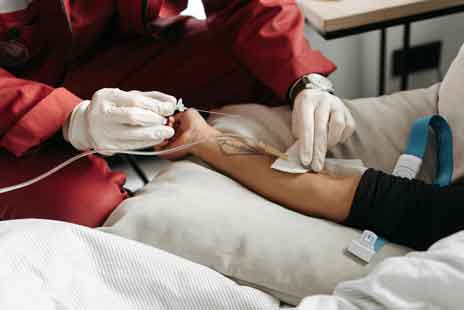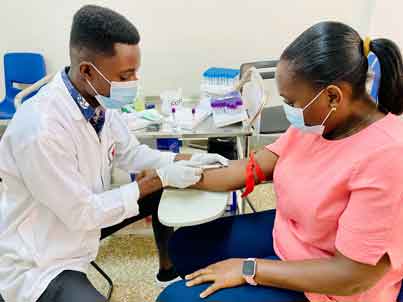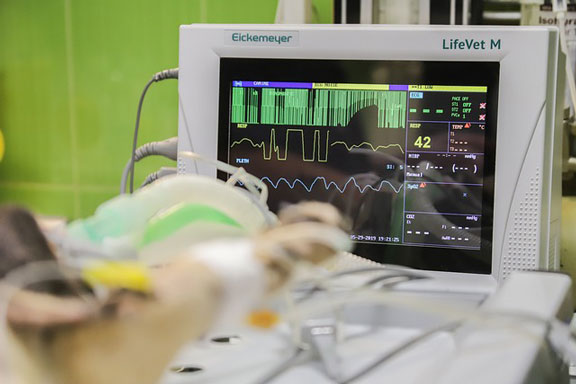Welcome To Our Courses
MDC Mobile Phlebotomy School of Phlebotomy offers a comprehensive program designed to prepare students for the dynamic field of phlebotomy. This course of study equips students with the essential skills and knowledge required to excel as phlebotomists. Through a blend of theoretical instruction and hands-on training, students learn the techniques of blood collection, patient interaction, and safety protocols. The program emphasizes the importance of accuracy and professionalism in collecting blood samples for diagnostic testing, ensuring graduates are well-prepared to meet the demands of healthcare settings.

Phlebotomy
This course is designed to prepare students for roles as mobile phlebotomists, providing flexible and essential services to patients who may not be able to visit traditional healthcare facilities.
This Phlebotomy course trains students to perform phlebotomy services in various locations, such as patients’ homes, healthcare facilities, and community events. Here are some key components typically covered in such a course:
- Phlebotomy Techniques: Training in venipuncture, finger sticks, and heel sticks to collect blood samples.
- Anatomy and Physiology: Understanding the human circulatory system to ensure accurate and safe blood collection.
- Patient Interaction: Learning how to prepare patients for blood draws and provide a calming experience.
- Safety and Infection Control: Emphasizing the importance of maintaining a sterile environment and following safety protocols to prevent contamination and infection.
- Specimen Handling and Labeling: Proper techniques for labeling and transporting blood samples to ensure their integrity.
- Mobile Operations: Managing the logistics of traveling to different locations and setting up mobile phlebotomy stations.
- Legal and Ethical Considerations: Understanding the legal and ethical responsibilities of a mobile phlebotomist, including patient confidentiality and consent.
- Clinical Practice: Gaining hands-on experience through clinical rotations or externships to apply learned skills in real-world settings.


Medical Assistant
The Medical Assistant course is designed to provide students with the essential skills and knowledge required to become proficient in blood collection. This comprehensive program combines theoretical instruction with hands-on practice to prepare students for a career in phlebotomy.
- Understand the role and responsibilities of a phlebotomy technician.
- Learn the principles of proper phlebotomy techniques, including venipuncture and capillary puncture.
- Gain knowledge of infection control and safety procedures.
- Master the use of phlebotomy equipment and supplies.
- Develop skills in patient interaction and compassionate care.
- Learn to process and handle blood specimens correctly.
- Prepare for the National Healthcareer Association Certified Phlebotomy Technician (CPT) exam
Patient Care Technician
This course is designed to equip students with the knowledge and skills needed to support patients and healthcare teams effectively.
A Patient Care Technician (PCT) course prepares students to provide essential care to patients in various healthcare settings. Here are some key components typically covered in a PCT course:
- Professionalism and Communication: Emphasizes the importance of effective communication and professional behavior in a healthcare environment.
- Basic Patient Care Skills: Includes training in bathing, feeding, and assisting patients with mobility.
- Vital Signs Monitoring: Teaches how to measure and record vital signs such as blood pressure, temperature, and pulse.
- Electrocardiography (ECG): Covers the procedures for performing and interpreting ECGs.
- Phlebotomy: Provides instruction on drawing blood and handling specimens.
- Safety Standards: Focuses on maintaining a safe environment for both patients and healthcare workers.
- Clinical Experience: Offers hands-on training in real healthcare settings to integrate skills and concepts learned in the classroom.


Medical Billing
This course is designed to prepare students for roles such as medical billers, coding specialists, and billing coordinators in various healthcare settings.
Our Medical Billing course equips students with the skills and knowledge needed to manage billing processes in healthcare settings. Here are some key components typically covered in this course:
- Medical Terminology: Understanding the language used in healthcare to accurately process billing information.
- Insurance and Billing Procedures: Learning how to handle various types of insurance claims and billing processes.
- Coding Systems: Training in coding systems such as CPT, ICD-10, and HCPCS to ensure accurate billing.
- Revenue Cycle Management: Understanding the entire billing cycle from patient registration to final payment.
- Compliance and Regulations: Familiarizing with laws and regulations related to healthcare billing, including HIPAA.
- Electronic Health Records (EHR): Using software to manage patient records and billing information
- Practical Experience: Gaining hands-on experience through simulations or internships to apply learned skills in real-world scenarios.
Lab Assistant
This course is designed to equip students with the practical skills and knowledge needed to work effectively as lab technicians in various medical and research environments.
A Lab Technician course prepares students to perform essential laboratory tasks in medical and research settings. Here are some key components typically covered in such a course:
- Basic Laboratory Skills: Training in specimen collection, handling, and analysis.
- Laboratory Safety: Emphasizing safety protocols and procedures to prevent contamination and ensure a safe working environment.
- Anatomy and Physiology: Understanding the human body and its functions to better analyze lab results.
- Chemistry and Biology: Learning the principles of chemistry and biology that are fundamental to laboratory work.
- Phlebotomy: Instruction on drawing blood and handling blood samples.
- Data Interpretation: Analyzing and interpreting data from various tests and experiments.
- Quality Control: Ensuring accuracy and reliability in lab results through quality control measures.
- Clinical Rotations: Gaining hands-on experience in real healthcare settings to apply learned skills.


EKG
This course is designed to prepare students for roles as EKG technicians in hospitals, clinics, and other healthcare settings.
An EKG (Electrocardiogram) course trains students to perform and interpret EKGs, which are essential for diagnosing heart conditions. Here are some key components typically covered in an EKG course:
- Cardiovascular Anatomy and Physiology: Understanding the structure and function of the heart and circulatory system.
- EKG Equipment and Procedures: Learning how to operate EKG machines and perform EKG tests accurately.
- Lead Placement: Proper placement of electrodes to ensure accurate readings..
- Interpreting EKG Results: Analyzing EKG tracings to identify normal and abnormal heart rhythms.
- Patient Interaction: Communicating effectively with patients and ensuring their comfort during the procedure.
- Legal and Ethical Considerations: Understanding the legal and ethical aspects of performing EKGs.
- Clinical Practice: Gaining hands-on experience through clinical rotations or simulations.